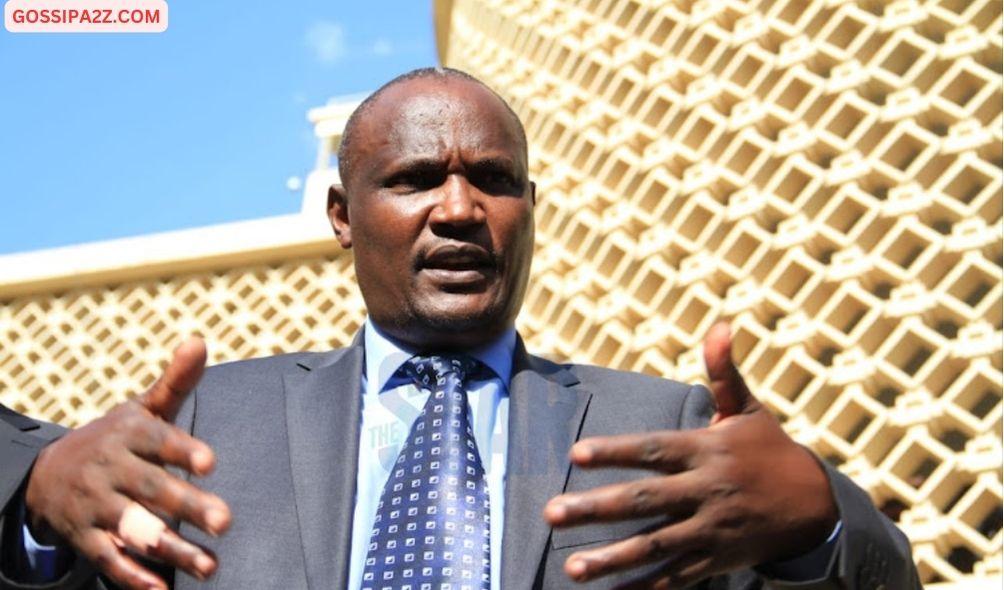MPs to Probe Treasury Over Sh28.84 Billion Expenditure Under Supplementary Budgets
MPs are closely monitoring the National Treasury concerning the expenditure of Sh28.84 billion by the government before approval by the National Assembly, following an audit indicating possible misappropriation of the funds.
Auditor-General Ms. Nancy Gathungu highlighted irregular spending in a special audit covering national government expenses from the fiscal years 2014/15 to 2022/23, as per Article 223 of the constitution.
The article stipulates that the federal government is permitted to utilize funds that haven’t been formally allocated if the allocation approved by the National Assembly falls short or if there’s a requirement for expenditure on a purpose that hasn’t been specifically budgeted for.
On Sunday, John Mbadi, a nominated MP who leads the National Assembly Public Accounts Committee (PAC), disclosed to Gossipa2z.com that National Treasury Principal Secretary Chris Kiptoo is among those slated for questioning regarding questionable spending. The committee, which instructed the Auditor-General to conduct a special audit, has identified Kiptoo as one of the individuals to be interrogated.
“The special audit revealed glaring irregularities involving the expenditure of the funds under Article 223 of the constitution. As a committee that requested the Auditor-General to undertake the audit, we are seized of this matter and those involved will have no room to escape,” Mr Mbadi, an accountant, said.
The article additionally mentions that Parliament must seek retrospective approval for any expenditures made under the mentioned article. This approval should be sought through the National Assembly in the form of a supplementary budget within two months following the initial withdrawal of funds.
If Parliament isn’t in session when it needs to approve spending, or if it adjourns before seeking approval, it must do so within two weeks of reconvening.
ALSO READ:
- “Two Groups, One Agenda”: Gachagua Accuses Raila of Secret Political Deals
- Exclusive: Ida Odinga’s 75th Birthday Party in Karen (Photos)
- FKF President Discloses Exact Amount Paid to Harambee Stars Players
- Gachagua’s Ally Senator John Methu Admits Ruto Might Win 2027 Elections
- Maraga Explains Why He Hasn’t Campaigned in Kisii Despite 2027 Bid
Mr Mbadi noted that the fact that the expenditures would subsequently be regularized by the National Assembly via supplementary budgets presented by the National Treasury, “does not mean that those behind it are safe.”
“Those responsible will have to explain to the National Assembly why they did not spend public funds as required by law with those found culpable to face the consequences of their actions,” said Mr Mbadi.
Ms. Gathungu has specifically highlighted concerns regarding the spending on stabilizing the refined petroleum pump program, outstanding bills for the National Optic Fibre Backbone Infrastructure (NOFBI) project, and funding for Junior Secondary Schools (JSS) students.
Other items consist of inadequately designed Competence-Based Curriculum (CBC) classrooms and the provision of Medical Equipment and associated services to 17 public health institutions.
“Some of the projects funded through withdrawals under Article 223 had not been put to use,” says Ms Gathungu noting; “this kind of expenditure undermines the budgeting process as envisaged in the constitution.”
She added, “Based on the findings, we can conclude that these expenditures did not justify the need for their withdrawal under Article 223 of the constitution and there was no value for money.”
The Auditor-General’s findings are also included in the report presented to the Budget and Appropriations Committee (BAC) of the National Assembly, outlining the review of budget implementation for the first half of the current fiscal year, 2023/24.
For example, the audit highlights that 7,340 students from the selected Junior Secondary Schools did not receive funding, even though a total of Sh13.51 billion was allocated.
ALSO READ: MPs Propose Creation of New Ministry & Issuance of Special Guns
The report indicates that classrooms built in 215 secondary schools through the government’s CBC classroom construction initiative displayed substandard craftsmanship, with some remaining unused.
Concerns have been raised regarding the payment of Sh5.32 billion for stabilizing advance sales of local volumes within the Stabilization of Refined Petroleum Pump program, despite the absence of a framework.
Although Sh2.21 billion was paid as administration costs for the period ended June 30, 2023, “there was no justification for including the stabilization administration costs in the pump price buildup.”
Additionally, customers bore the burden of Sh3.18 billion in demurrage fees reflected in pump prices.
The report states that although sums of Sh2.5 billion and Sh551 million were withdrawn during the fiscal years 2018/19 and 2019/20 respectively to clear outstanding bills for the NOFBI project, there is a lack of accompanying documentation providing details of how these funds were spent.
Other items highlighted encompass the Sh824.98 million allocated to the financial inclusion fund, which hasn’t been sent to telecommunications service providers for distribution to borrowers and the Sh555.23 million designated for medical equipment and related services for 17 public health institutions.
ALSO READ: ‘Fake Or Genuine?’ Agriculture CS Linturi Struggles to Justify Faulty Fertilizer
The report states that two cold storage facilities, one located in Ol Kalou in Nyandarua and the other in Timau in Meru, were purchased for Sh185.03 million. These facilities, which have a combined capacity of 240 tonnes of potatoes, were found to be inactive.
The audit findings indicate that in each fiscal year under examination, the government enacted two additional budgets, except the 2019/20 fiscal year, during which three supplementary budgets were approved.
The audit indicates that there has been “a gradual increase” in requests for funding under Article 223, from an amount of Sh1.1 billion requested in the financial year 2014/15 to Sh147.39 billion in the financial year 2022/23.
During nine years, there was a notable surge of 13,299 percent. Moreover, from the fiscal years 2014/15 to 2022/23, the national government disbursed funds ranging from 0.4 percent to 67.8 percent of the requested amount before seeking approval from the National Assembly.
MPs to Probe Treasury Over Sh28.84 Billion Expenditure Under Supplementary Budgets
